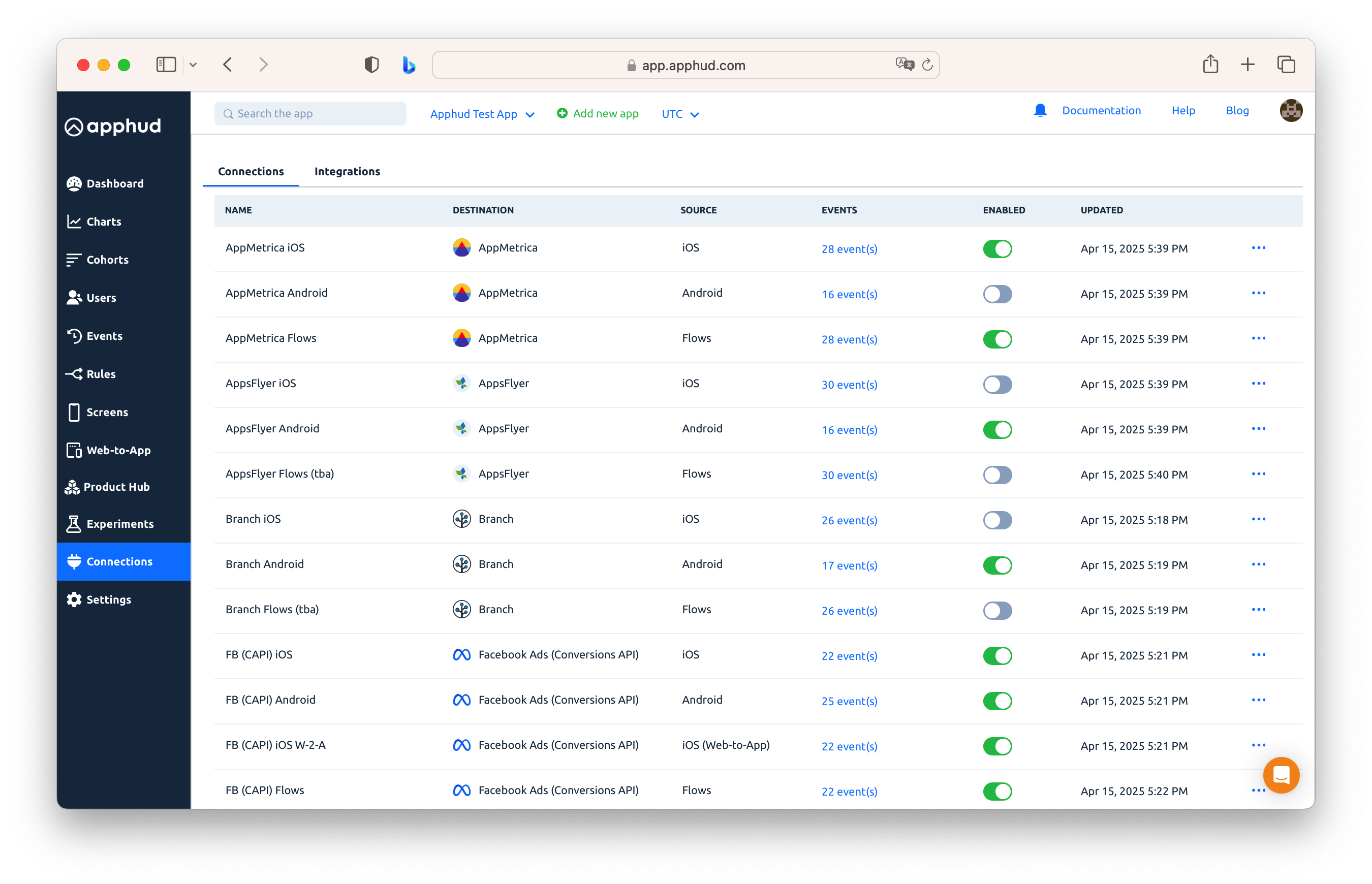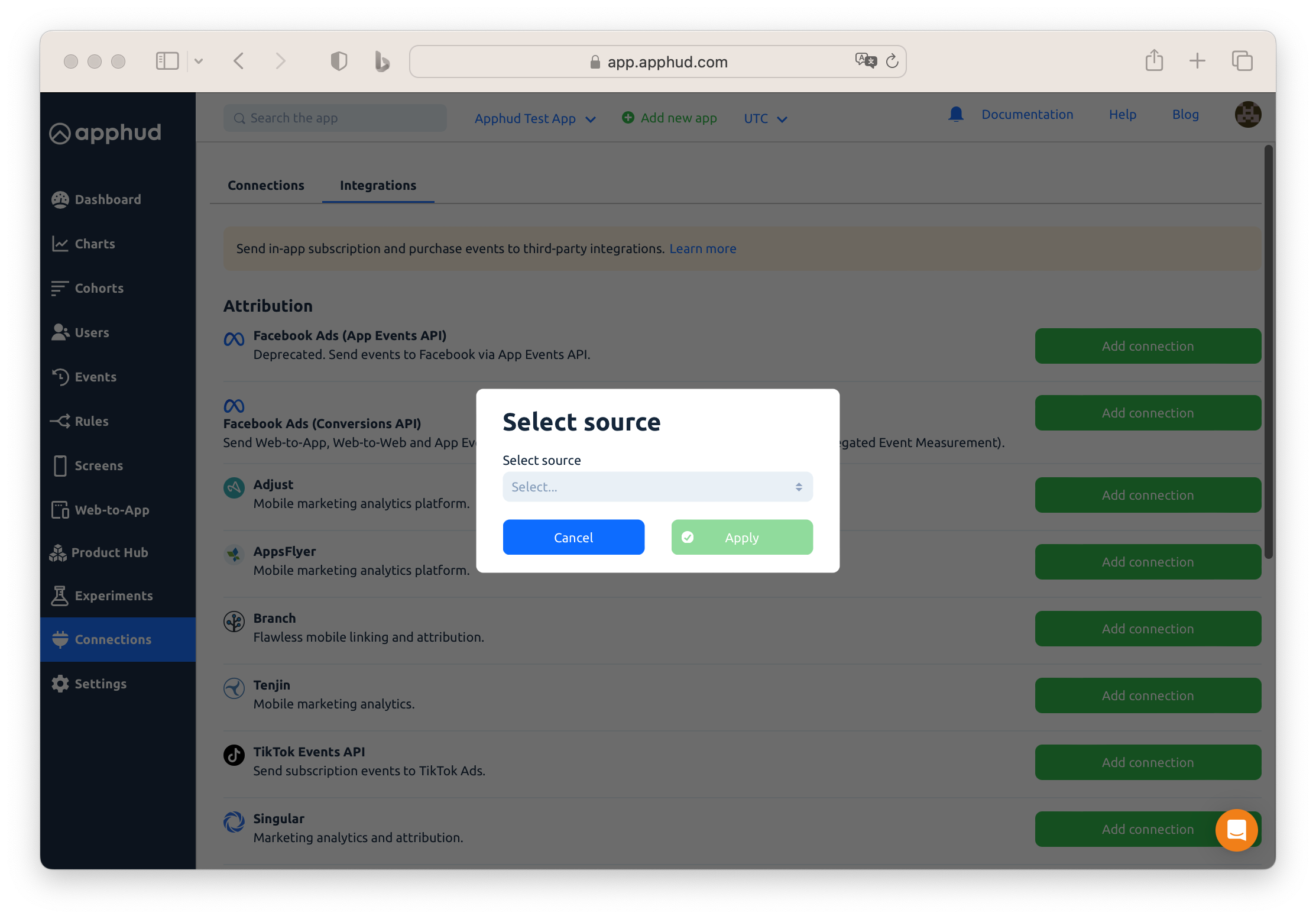Integrations Overview
Apphud offers a powerful and flexible integrations system designed to support a wide range of use cases, from marketing attribution to product analytics and server-to-server communication. This system is built on the concept of Connections—configurable, source-specific integration instances that give you full control over how and where your app data is delivered.

The Connections module includes two tabs:
- Connections – displays all configured integrations, both active (Enabled = true ) and inactive (Enabled = false).
- Integrations – shows the list of available integration types you can set up.
To create a new integration, go to the Integrations tab, select the desired option, and click Add Connection to start configuration.
Key Concepts
Platform-Specific Sources
When setting up a new integration, you’ll be asked to choose a Source—the origin of the data the integration will use. Available sources may include:
- iOS
- Android
- Flows
- iOS (Web-to-App)
- Android (Web-to-App)

Each integration type supports a specific set of sources.
For example:
- Amplitude supports iOS, Android, and Flows;
- Google Ads supports iOS, Android, Flows, iOS (Web-to-App), and Android (Web-to-App);
- Asapty supports iOS only.
This approach ensures that your integrations are precisely tailored to the data stream you want to monitor.
NoteIf your app includes both iOS and Android platforms in Apphud and you want to send events to a third-party destination (e.g., Adjust), you’ll need to create separate integrations for each source—one for iOS and one for Android.
Named Connections
Each connection has a customizable Name. This name helps you easily identify it in the connections list and events logs.
Multiple Connections per Integration Type
You can now create multiple instances of the same integration type. This is especially useful if you want to use different configurations for parallel marketing or analytics tools.
Filtering Capability
NoteApplication of custom filters to a connection is available on Expert plan or higher.
For each integration that receives events from Apphud, you can apply granular filters to get notifications only when specific conditions are met.
The following filters are available:
General
App Version: supports =, >, < (e.g., > 1.20.1)
User
Country by IP
Store Country
Has Advertising ID (IDFA)
Product
Type: Auto-renewable, Non-renewing
Duration: Weekly, 2 Weeks, Monthly, 3 Months, 6 Months, Annually
Family Shared: True, False
Product ID
Paywall
Placement
Revenue (USD): supports comparison (<, >, =)
Attribution
Ad Network
Channel
Campaign Name
Here Apphud Attribution values are checked first, and if empty, then Partner attribution data will be checked.
User Properties
Keys with exact values
Environment Configuration
For each integration, you can choose which events to send — Production, Sandbox, or both — via the Environment Configuration parameter. Beware that the Send Production events option is checked by default.
Revenue configuration
Apphud allows sending revenue data as proceeds if Send sales as proceeds option is chosen. Otherwise, revenue will be sent as sales.
Available Integrations
Explore the available integration categories below to start configuring integrations for your app:
Updated 8 months ago
